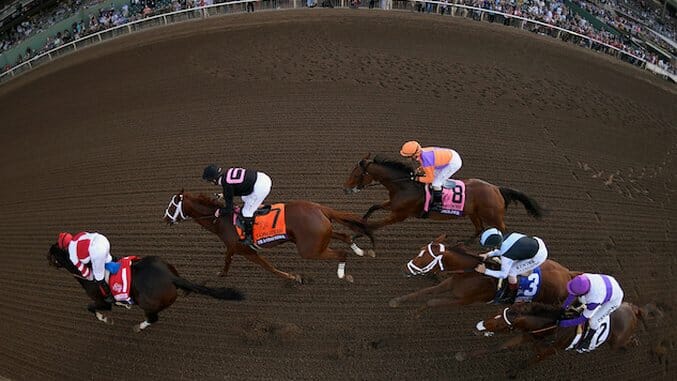In Bloodlines, Melissa del Bosque Tracks a Web of Cocaine and Horse Racing
Photo by Harry How / Getty Images
In Bloodlines, Melissa del Bosque tracks a sprawling web of cocaine and quarter horses spanning the Rio Grande. Her book plants one foot in cartel-controlled Mexico—where military-trained narcos become de-facto governments and messages are sent via decapitated bodies—and another in the fast-money world of quarter horse racing—from Austin’s plush suburbs to Oklahoma’s auction houses. Operating in between are the book’s true subjects: the law enforcement officers, criminal operators, and citizens of the Texas/Mexico border.
 Set from 2009 to 2013 during the rise of the Zeta cartel, Bloodlines details the FBI’s investigation into Zetas boss Miguel Treviño’s horse racing empire. Deeply passionate about racing, Treviño combined business with pleasure by using the insular, lightly policed, and desperate-for-cash world of quarter horse racing to launder his drug money. Using his older, heretofore clean brother José as the face of his business, Treviño began to establish an incredibly complex money-laundering scheme within the United States.
Set from 2009 to 2013 during the rise of the Zeta cartel, Bloodlines details the FBI’s investigation into Zetas boss Miguel Treviño’s horse racing empire. Deeply passionate about racing, Treviño combined business with pleasure by using the insular, lightly policed, and desperate-for-cash world of quarter horse racing to launder his drug money. Using his older, heretofore clean brother José as the face of his business, Treviño began to establish an incredibly complex money-laundering scheme within the United States.